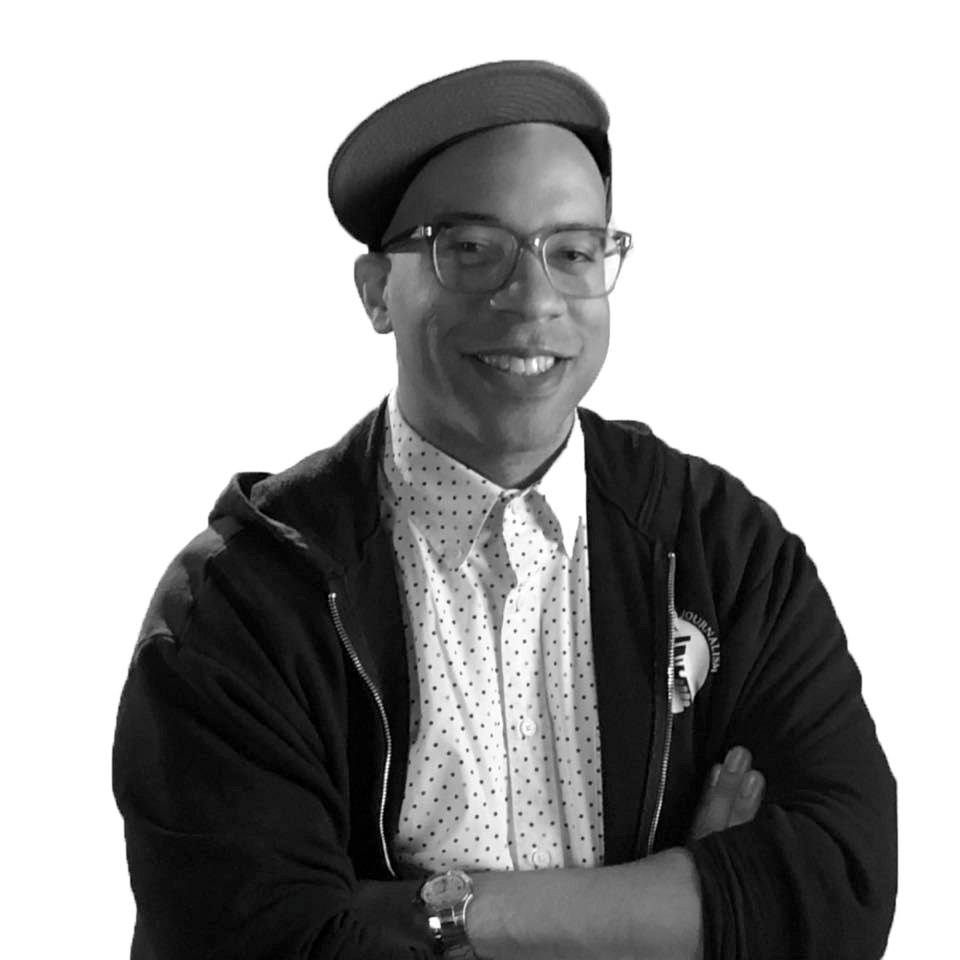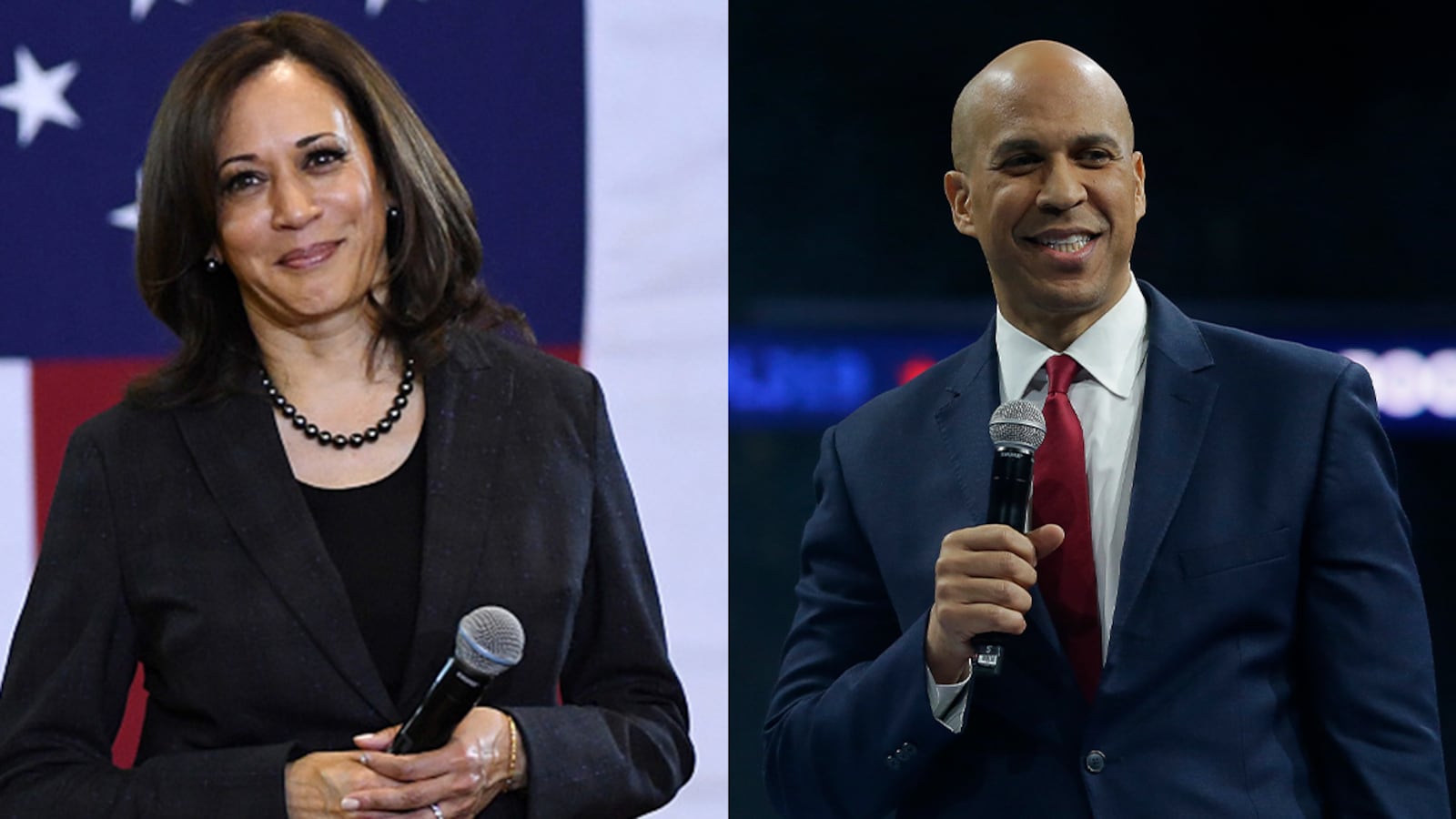Black voters—how to engage them and motivate them—is a looming danger for the Democratic party. The debate at Tyler Perry’s studios in Atlanta laid bare a stark reality for the party: Its current four frontrunners are all white and its candidates of color are understandably frustrated by that.
After all, it’s not as if this year’s Democratic frontrunners have demonstrated the same kind of facility with African-Americans as past white nominees like Bill Clinton and Jimmy Carter. Mayor Pete Buttigieg, Sen. Elizabeth Warren, and Sen. Bernie Sanders have all struggled to make much of a dent with black voters nationally or in the early primary states.
And while Vice President Joe Biden’s standing in the polls can be largely attributed to black voters as his campaign has essentially been an Obama nostalgia tour, his record on race is so spotty one would think a candidate of color could exploit it to great effect.
Recent polling has found that an overwhelming majority of black voters (85 percent) will back any of the Democrats over Trump in 2020. Their level of enthusiasm, however, is a genuine cause for concern.
The four-million-plus Obama voters who sat out 2016 and may have cost Hillary Clinton an electoral college victory were disproportionately black and brown. In fact, black turnout dropped for the first time in decades in the last general election contest. President Trump even went so far as to thank them for not showing up.
Renewed engagement in off-year elections from voters of color should be encouraging for the Democrats, and many of the party’s brightest new stars like Rep. Alexandria Ocasio-Cortez and Stacey Abrams are non-white.
And yet, in the presidential field, the candidates of color have so far been coming up short.
After a brief surge, Sen. Kamala Harris is now fending off reports of a campaign in disarray. Once viewed as a serious threat to win the predominately black South Carolina primary, her support there is at 3 percent.
Sen. Cory Booker, who never forgets to remind debate audiences that he lives in a predominately black community, is at 1 percent in South Carolina.
Former Housing Secretary Julian Castro, who set himself apart from the rest of the 2020 field early with ambitious policies on immigration, wasn’t even able to make the most recent debate stage.
Rep. Tulsi Gabbard’s campaign, while surprisingly resilient, has been frequently overshadowed by her stubborn refusal to fully condemn Syrian dictator Bashar al-Assad and the fact that white supremacists like David Duke think they have common cause with her.
Only Andrew Yang, the least well-known of all the minority candidates prior to the primary, has seemed to inspire a devoted following though he’s largely viewed as a one-issue candidate and hasn’t cracked the top tier of any presidential polls so far.
With Booker and Harris in particular, their underperformance is stunning. While perhaps not as well-known as Sanders, Warren, or Biden, both had built some national name recognition and both leaned heavily on their backgrounds as an advantage when it comes to building the kinds of coalitions that power Democrats to victory.
And yet, despite widely lauded debate performances, neither candidate has really broken though. It’s true that both have faced withering criticism from the left wing of the party’s base—Booker for his longstanding ties to the financial industry and Harris for her controversial record as a prosecutor—but there may be something more insidious at play.
It appears that many Democratic voters—black and brown ones very much included—have internalized the racialized rush to judgment about electability that took place after the 2016 contest.
Although Hillary Clinton was a white candidate, many pundits felt in hindsight that she had leaned too hard on her black and brown constituency, losing the mostly white so-called heartland in the process. Most of those pundits ignored the fact that Democrats have been bleeding support from these voters for decades.
It’s fair to say most Democrats were shell-shocked after election night, and black voters, who have historically been distinguished by their pragmatism, took to heart the idea that following eight years of Obama maybe what America wanted was a white person in the White House.
A USC Dornsife/Los Angeles Times national poll from this summer found that Democrats on the whole believe that at an older, moderate white man would be their ideal candidate to take down Trump. While that same poll found that African-Americans preferred a candidate of color, it’s fair for their read of white voters’ inclinations to be more cynical.
This may account for some of Biden’s unwavering support in the black community, which he claimed to be a part of at the most recent debate. It’s true that there is a genuine affection and appreciation for his loyal support of the first black president and that his is the field’s most familiar face. But he also has enjoyed the privileges of being a straight white man running for president.
He can stumble through debates and stick his finger in Sen. Warren’s face and emerge relatively unscathed, while Harris, Booker and every other candidate of color must somehow persuade a 98 percent white electorate in the first two primary contests to take a chance on them instead.
Clearly, former Massachusetts Gov. Deval Patrick seems to think the uphill battle is worth fighting. He’s jumping into a race that was already the most diverse in the history of this country. He too may have to suffer indignities like Booker’s Rhodes Scholarship being largely forgotten in favor of Buttigieg’s, or Biden’s real-time erasure of Harris’ historic Senate win, when he said at the debate that he had the support of the only black woman elected to the Senate. As he corrected himself to say he’d meant the first black woman elected to the Senate, Harris waved her hands, laughed and said “I’m right here.”
Some things never change, and even as black and brown voters are expected to bail out Democrats regardless of quality in election after election, black and brown candidates are expected to be twice as thick-skinned as their white peers even as they try to overcome amorphous concerns about their electability.
The ability to withstand all that certainly generated a lot of confidence from Democrats in Barack Obama, and that resilience was borne out in his two resounding presidential election victories. If any 2020 candidate of color can pull off the same feat of rallying the party behind them, defeating Trump may feel like a relatively small hurdle in comparison.







